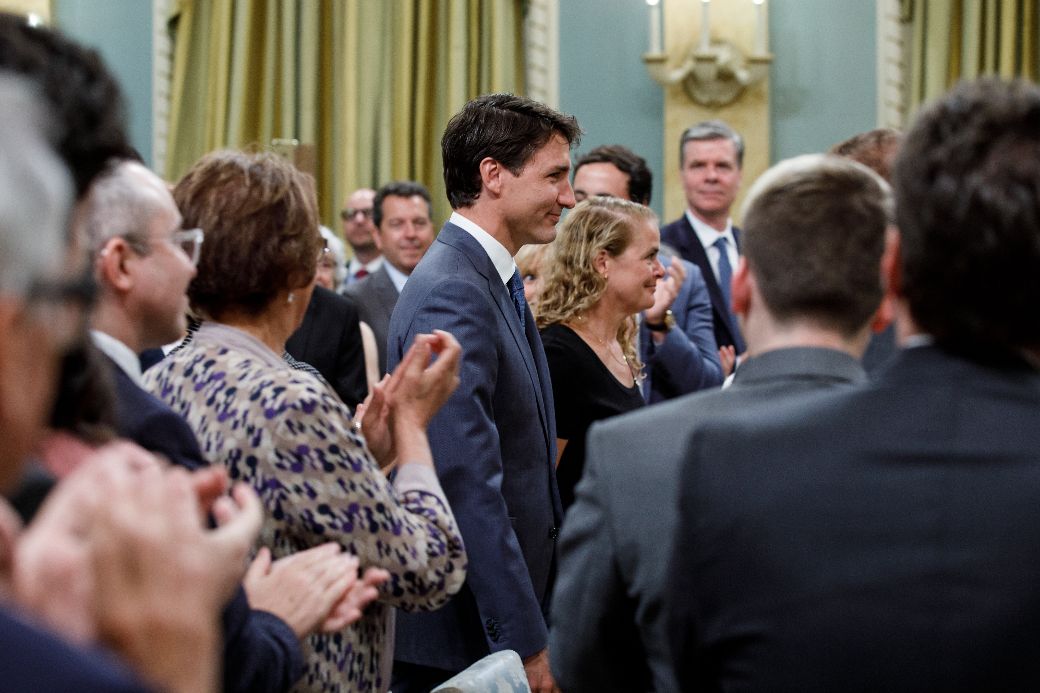Canadians look to the federal government for leadership. What they have been getting instead from the Liberal government is stewardship.
With Parliament reconvening next week, and just over a year remaining before the scheduled 2019 election, it is time for the government and opposition parties to put their best policy ideas forward.
The Liberals like to focus on building the middle class. With interest rates slated to rise, what does the government have to offer recent home purchasers who are going to face costly mortgage rate hikes which may well make it difficult to hold onto their homes?
Property developers are making money, while aspiring homeowners in major centres face affordability barriers. Encouraging the private sector to provide market-based answers to housing has failed to provide either ownership opportunities at reasonable cost, or, crucially, enough rental and social housing spaces.
What do party leaders have to say about the severe shortages of affordable housing that affect especially residents of Vancouver and Toronto?
The gap created when the Liberal government abandoned funding for low-income and co-op housing in the 1990s cannot be filled with the less than $1 billion per year funding for Central Mortgage and Housing Corporation initiatives announced in the 2016 federal budget.
Aboriginal housing needs alone require more policy efforts than the Liberal government has been willing to expend on the rental-and-ownership-housing question.
Making a transition to a green economy is a significant challenge facing governments worldwide. Canadians still await ideas from the Conservatives, and on how best to address this difficult but pressing question. The NDP has policies to suggest, but no apparent strategy to bring them to public attention.
The Liberal government has been more concerned with promoting profit opportunities for existing investments in bitumen sands than with helping provincial governments promote renewable energy and practice sustainable development.
Growth in student debt is a direct result of provincial governments pushing Canadian universities to increase tuition fees following the withdrawal of adequate funding from the federal government in the 1990s. Expansion of post-secondary education in Canada occurred beginning in the 1960s because the federal government stepped up and provided funds to the provinces under federal-provincial cost-sharing agreements. Victims of misguided federal austerity, these joint federal-provincial financing arrangements need to be revisited.
Who will speak up for younger Canadians and call for student loans to be written down and forgiven?
Canada has no social safety net, no real child-care services outside Quebec, no dental programs even for children, and high drug prices that are about to get higher when the Liberals cave in to U.S. demands to increase patent protection in a renewed NAFTA.
The Liberals suggest they will campaign on pharmacare and adding child-care spaces, which opens the door for the NDP to bring out detailed plans showing what effective, universal programs would look like.
The top priority for the Liberals has been the renegotiation of NAFTA. The Globe and Mail reported September 8 that Team Trudeau, after pledging to work with Mexican negotiators, instead went behind their back to offer a quick settlement to Donald Trump that would have had Canada make concessions on supply management for milk, and on behalf of the Mexicans on autos. The gambit failed.
Once betrayed by Canada, the Mexicans negotiated directly with the U.S., and Canada is now caught trying to renegotiate a done deal.
Look for the Trudeau government to announce a NAFTA agreement and then attempt to hide the real concessions from the public by claiming to have saved Canadian cultural industries — that have been under-funded for decades — from non-existent attacks by U.S. negotiators.
The alternative to NAFTA is multilateral trade through a reformed WTO, not regional deals with Europe or the Pacific, or bilateral accords with China or India. The NDP should be stepping up its contacts with other leftist parties around the world, and working to bring specific ideas about fair trade and investment practices to the public debate.
On policy issues the Andrew Scheer Conservatives represent little change from the Stephen Harper era. Justin Trudeau still has to fear that Canadians disappointed in his leadership will turn to Conservatives.
Scheer faces a challenge from defeated rival Maxime Bernier who is threatening to start a rival conservative party, which gives Trudeau some political breathing room.
This week the NDP caucus meets in Surrey, B.C. for three days to prepare for the coming parliamentary session. MP Nathan Cullen told journalist Ian Bailey that the meeting is for a “reset.”
Party members will be keen to see what leadership ideas Jagmeet Singh and his caucus have to offer Canadians.
Duncan Cameron is president emeritus of rabble.ca and writes a weekly column on politics and current affairs.
Photo: Adam Scotti/PMO
Help make rabble sustainable. Please consider supporting our work with a monthly donation. Support rabble.ca today for as little as $1 per month!




